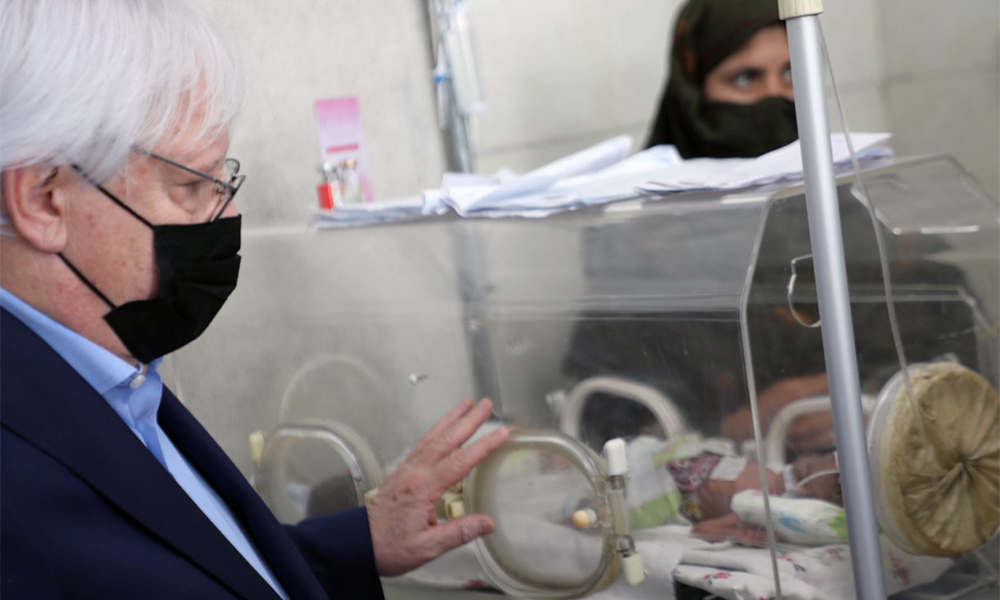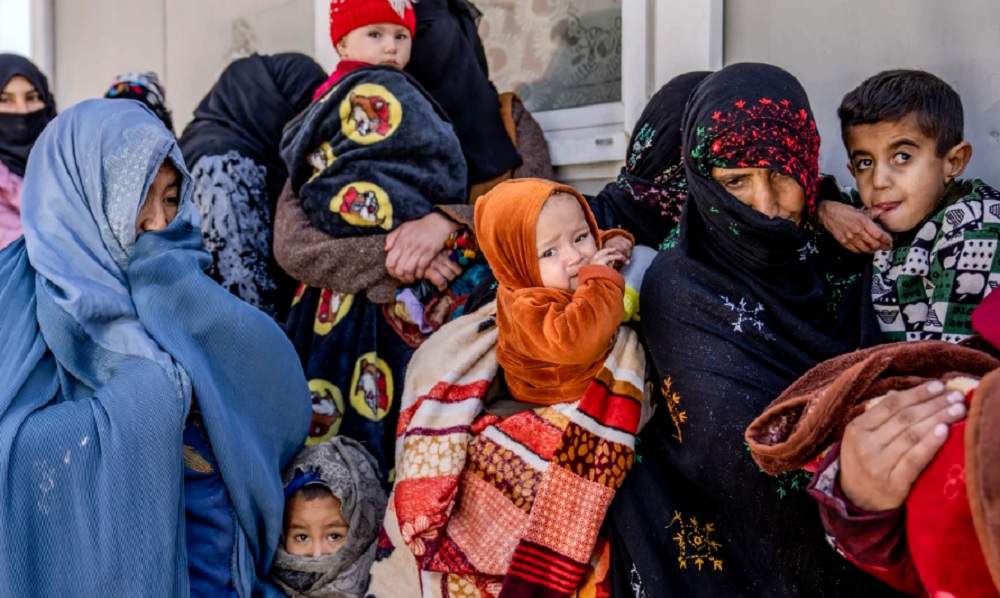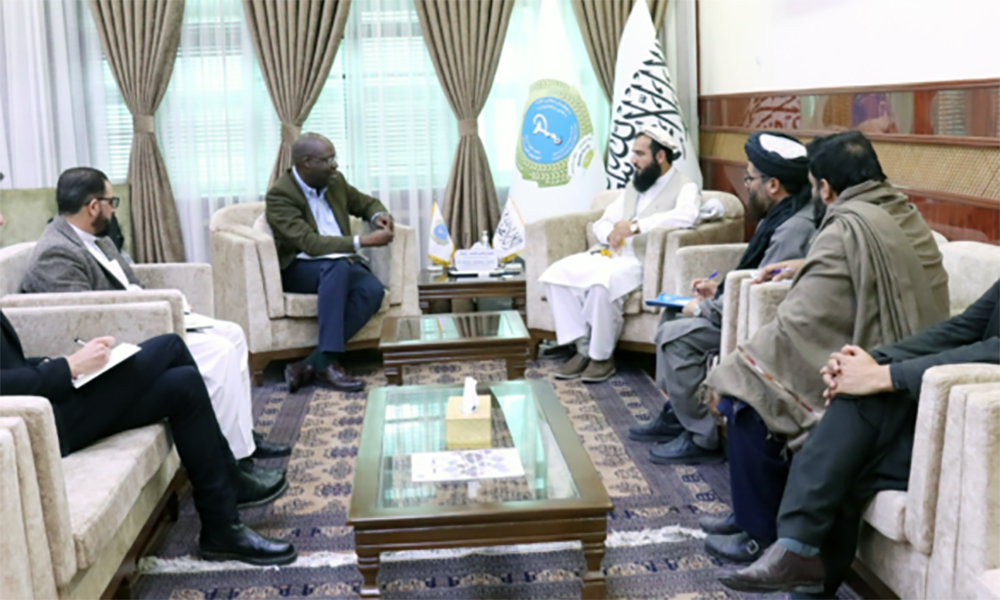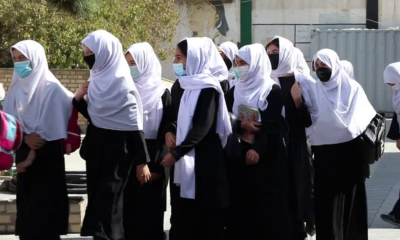Health
Senior UN officials visit Kabul; raise concern over plight of children

High-ranking United Nations officials, who visited Kabul, have expressed concern about the situation of malnourished children in Afghanistan.
Martin Griffiths, Under-Secretary-General for Humanitarian Affairs and Emergency Relief Coordinator warned during his visit to Afghanistan that many of these children could die.
In a series of tweets, Griffiths, highlighted the situation and said: “I began my visit to Afghanistan at the Indira Gandhi Children’s Hospital in Kabul. I struggle to put into words how profoundly affected I was by the plight of the babies I met. Tiny, listless newborns, two to an incubator, suffering from acute malnutrition.”
The Ministry of Public Health acknowledges that the rate of malnutrition is high and that acute malnutrition of children has been recorded in 28 provinces, with a total of 3.5 million children in Afghanistan in dire need of food assistance.
“Yes, in 2022, the number of people suffering from malnutrition has increased, and along with the problems of poverty, misery, measles, etc., it leads to malnutrition,” said Javid Hazhir, spokesman for the Ministry of Public Health.
Malnutrition is the worst enemy of children’s health. Doctors also say that the main reason for malnutrition is poverty, lack of food security along with fatal diseases such as persistent diarrhea and cold also cause malnutrition.
“Poverty is one of the main causes of malnutrition in Afghanistan. Our people get this disease from misery and lack of food,” said Haseb Ahmadzai Wardak, head of Indira Gandhi Children’s Hospital in Kabul.
Health
Majority of Afghans with mental disorders are women: officials

Based on last year’s data, 52 percent of people with mental disorders in Afghanistan are women, the Ministry of Public Health said.
However, after the Islamic Emirate took over the country and with the improvement of nationwide security and the provision of better health services, mental disorders have decreased, the ministry said.
“Overall, the mental security of men and women in Afghanistan is not ensured and their mental security is disturbed. According to the figures shared with us, in 2023, 52 percent of the visitors for mental disorders were women,” said Sharaft Zaman Amarkhil, the spokesperson of the Ministry of Public Health.
“Generally speaking, we can say that compared to the past, the instances of mental illnesses have decreased,” he added.
People suffering mental disorders mostly refuse to share their problem, willingly or unwillingly.
“There are many problems at home; We are poor. I finished school, but didn’t find any job,” Ansar, a mentally ill person, said.
According to the World Health Organization (WHO), half of Afghanistan’s population suffers from mental distress.
Factors such as unemployment, poverty, domestic violence, ban on girls’ and women’s education and work, and drugs are said to be key contributors to mental distress.
Health
Over 1 million women in Afghanistan malnourished last year: WFP

A total of 1.2 million women in Afghanistan were malnourished last year, the U.N. World Food Programme (WFP) said on Thursday.
Mona Shaikh, head of nutrition at WFP Afghanistan, said that the number of malnourished women is expected to increase this year.
On malnourished children, she said that their number will reach 3 million this year, but WFP will be able to assist only 1.6 million of them.
WFP warned that after foreign assistance cuts last year, it saw a rise in children’s admissions to malnutrition clinics in Afghanistan.
More than 23 million people are in need of humanitarian assistance in Afghanistan this year, according to the United Nations. Over half of them are children.
Health
Public Health minister meets with head of the UN refugees agency

Dr. Qalandar Ebad, the Minister of Public Health met with Leonard Zulu, the head of the United Nations High Commissioner for Refugees, on Thursday in Kabul to discuss issues facing the health sector in the country.
Among the issues discussed was that of the establishment of new health centers for returnees in the country.
Ebad said the provision of better health services for compatriots and returnees was one of his priorities and requested the cooperation of this organization in this field.
Leonard Zulu assured Ebad of the organization’s continued cooperation.
-

 5 days ago
5 days agoSaar: Concerns over drug trafficking from Afghanistan discussed
-

 Tahawol5 days ago
Tahawol5 days agoTahawol: Concerns over continuation of acting government discussed
-

 Regional3 days ago
Regional3 days agoIndian foreign ministry advises against travel to Iran, Israel
-

 Latest News5 days ago
Latest News5 days agoBanning girls’ education has caused economic issues: private school officials
-

 Latest News4 days ago
Latest News4 days agoAfghanistan withdrawal probe sparks anxiety within Biden administration: US’s McCaul
-

 Latest News3 days ago
Latest News3 days agoTop former US general claims Daesh-Khorasan is ‘on the upswing’
-

 Latest News3 days ago
Latest News3 days agoLightning strikes in Helmand kill one, injure three
-

 Science & Technology4 days ago
Science & Technology4 days agoChina launch of relay satellite Queqiao-2 for lunar probe mission successful
























